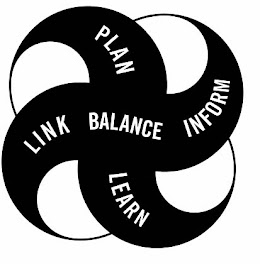Most of us want to live our lives in a harmonious flow, not underachieving or overdoing. Balancing our goals, the demands of others, what we have to do and what we want to do, is our own personal recipe for satisfaction -- or dissatisfaction. It's good to find the 'sweet spot' - the right amount of give and take - to keep ourselves in balance.
We strive for that flow in our day-to-day management of time and priorities. With so much to attend to each day, we have to make a conscious effort to make time to step out and re-balance. That may mean talking with a friend or advisor. It may mean taking a walk or meditating to hear our own inner voice and feel our center.
Balance is a dynamic process, guided by our inner compass of what is important. When in balance, we thrive. We are able to meet our own needs and be responsive to others.
We are thrown off balance when we buy into these myths:
I can (should) make others happy.
Others can (should) make me happy.
The way we get hooked is when these faulty expectations are not met. For instance, we get exhausted by saying yes to make someone happy. We get depressed or angry when others aren't doing what we want them to. We can go into a spiral of dissatisfaction.
We begin to make a case inside our minds. Either we, or they, are at fault.
Whenever I find myself in an internal dialogue of justification - "She was unreasonable in what she asked; she should know better; it's not my fault..." - it's a good clue that I am already out of balance. When I wake up and observe myself in that conversation, it's an opportunity to go back and see where I lost track of my own values. That will bring me back into balance a lot faster than finally settling whose fault it was.
Of course it does matter how our actions affect other people. People who succeed at relationships AND results are those who balance FOCUS - i.e. keeping your eye on the goal - with FLEXIBILITY - i.e. taking the current situation and other people's perceptions into account.
At work, sometimes we go off balance with too much focus on our goal and not enough input from others. Sometimes we go off balance with too much flexibility: consulting everyone and not forwarding the action. Consider how implicit beliefs about making each other happy or unhappy may be creating an imbalance.
Actions that create balance take the form of clear requests and agreements. Asking and saying yes or no are skills to cultivate in personal life as well as in business.
The way we know that we have found the right balance for ourselves is that it feels sweet!
Thursday, December 9, 2010
Subscribe to:
Posts (Atom)



